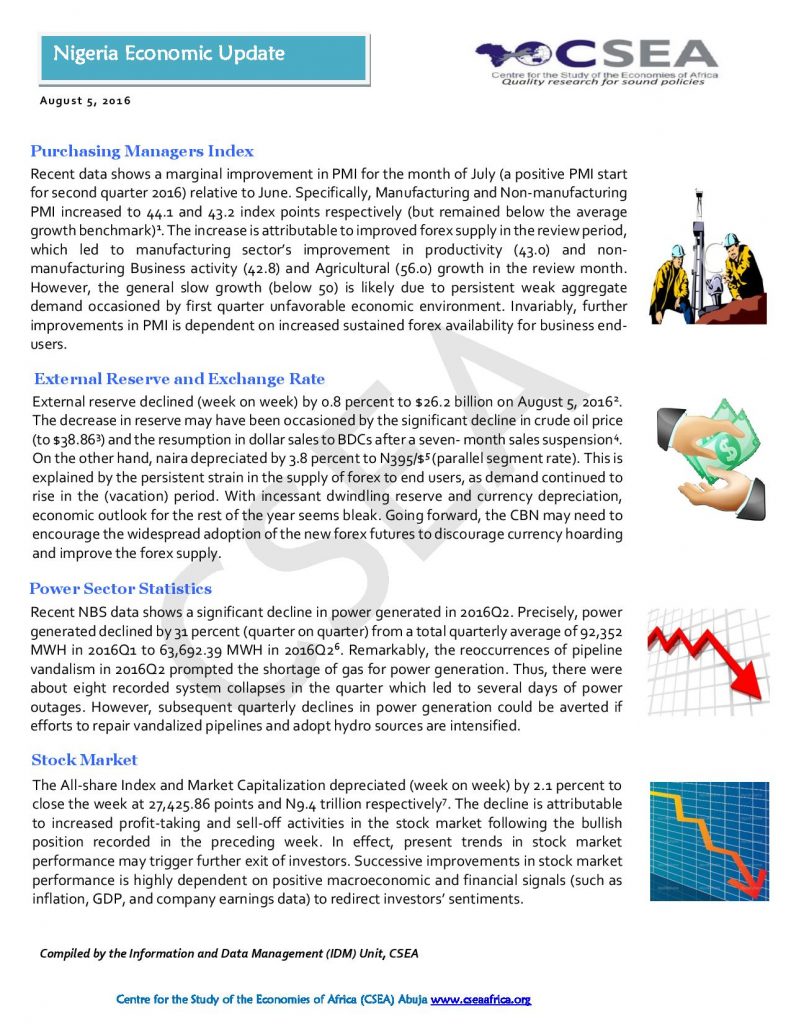Macroeconomic Report & Economic Updates

August 19, 2016
Nigeria Economic Update (Issue 34)
Recent NBS data shows a significant decline in
power generated in 2016Q2. Precisely, power generated declined by 31 percent
(quarter on quarter) from a total quarterly average of 92,352 MWH in 2016Q1 to
63,692.39 MWH in 2016Q2. Remarkably, the reoccurrences of pipeline
vandalism in 2016Q2 prompted the shortage of gas for power generation. Thus,
there were about eight recorded system collapses in the quarter which led to
several days of power outages. However, subsequent quarterly declines in power
generation could be averted if efforts to repair vandalized pipelines and adopt
hydro sources are intensified.
Related
Nigeria Economic Update (Issue 34)
Recently released report by the National Bureau of Statistics shows that Nigeria recorded remarkable Year-on-Year (YoY) and Quarter-over-Quarter (QoQ) increase in capital importation. Total capital importation stood at $1,792.3 million in 2017Q2, representing 72 percent YoY and 97 percent QoQ growths respectively. Disaggregated data points to portfolio investment as the dominant type of investment imported, with a value of $770.5 million, 43 percent of total capital importation. The increase in capital importation was driven by 145 percent QoQ surge in portfolio investment and a remarkable increase in capital imported through shares.
Nigeria Economic Update (Issue 30)
Power sector analysis shows an increase in
power generated by 3.01 percent from 2903.5mw to 2991.8mw between July 1, 2016
and July 8, 2016, with a peak of 3260.8mw on July 5, 2016. This is
however, still below the highest (5074.7mw) recorded in February, 2016. The
increase reflects improved use of hydro (water) for power generation.
The easing out of gas constraint occasioned by recent pipeline repairs have
also contributed to the increase in power generation. Improvements in power
generation would be sustained if hydro measures are complemented with
fast-tracked repairs on damaged gas channels and intensified efforts at
tackling pipeline sabotage.
